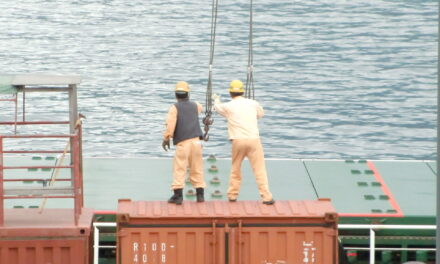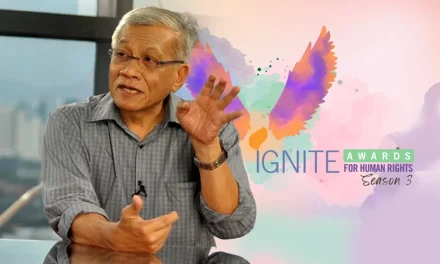[Espanõl]
Roger Burbach*
With the nationalization of Bolivia's natural gas and petroleum resources President Evo Morales, the country's first Indian president, is dramatically reshaping his country's destiny. On 1 May he proclaimed "an historic d ay has arrived. Now the gas and oil that flows from our land will no longer belong to foreigners." This came just after his return from Havana, Cuba where he signed the People's Trade Agreement with Fidel Castro and Hugo Chavez of Venezuela.
Until these dramatic steps, it was somewhat unclear what direction Morales was moving in during his first three months in office. He and his foreign minister held at least four talks with the US ambassador David Greenlee in which both sides seemingly extended the olive branch. As Greenlee said in March after one meeting, "we have a constructive dialogue with the government of Bolivia over a wide range of themes and mutual interests."
Two factors compelled Morales to seize the country's national resources and to realign the country internationally: the militancy of the country's peasant, worker and indigenous movements, and the decision of the United States to foist free trade agreements on Colombia and Peru that severely damaged Bolivian exports to other Andean nations.
Evo Morales and his political party, MAS, the Movement for Socialism, took power in January 2006 with a clear popular mandate. Social uprisings, starting in 2000, demanded that the state nationalize the country's natural gas and petroleum so the lucrative profits of these industries could be used to help lift South America's poorest country out of poverty. Three presidents resigned or were forced out of office by these popular protests.
Until 1 May, some of the country's popular movements felt that Morales had reneged on his campaign promises as he did little more than state that Bolivia already "owned its resources." His approval ratings dropped from 80 to 68 percent. But as one observer in La Paz notes, "Evo is a masterful politician." Morales chose this moment to act because of the elections for the Constituent Assembly that are scheduled for July. The assembly will have the power to redraft the country's constitution and reshape its political institutions.
As Vice-President Alvaro Garcia Linares has noted, the goal of MAS is "to achieve hegemony," and the Constituent Assembly is central to this process. Bolivia has been unstable for years because of poverty, military revolt s, and the conniving of the country's political elites as they loot the public treasury. As in Venezuela prior to Hugo Chavez' election, the traditional parties are viewed as bankrupt. Evo and MAS want to breathe new life into the country's political and social institutions, to give voice to the country's indigenous poor who have been exploited by the "caras," the faces of white oppression that have dominated Bolivia since the Conquest.
With the government's expropriation decree, fifteen corporations have been nationalized, with foreign capital from a wide variety of nations, including the United States, Spain, Great Britain, Brazil, France and the Netherlands. Seizing control of these enterprises goes to hand in hand with Bolivia's audacious steps in the trade arena. MAS and Morales view
neo-liberalism, US trade agreements, and corporate-driven globalization as major obstacles to the country's development. This year Colombia signed a so called "free trade agreement" with the United States that is particularly harmful to Bolivia. Sixty percent of Bolivia's major agricultural export, soy beans, currently go to Colombia. The US-Colombian accord means that cheap, subsidized US grains will flood Colombia, driving out Bolivian soy production.
neo-liberalism, US trade agreements, and corporate-driven globalization as major obstacles to the country's development. This year Colombia signed a so called "free trade agreement" with the United States that is particularly harmful to Bolivia. Sixty percent of Bolivia's major agricultural export, soy beans, currently go to Colombia. The US-Colombian accord means that cheap, subsidized US grains will flood Colombia, driving out Bolivian soy production.
Peru has also just signed a trade agreement with the United States that will have an adverse impact on Bolivian exports to Peru. These accords have ruptured the thirty-seven year old Andean Community of Nations, a trade p act that included Venezuela and Ecuador as well as Bolivia. Hugo Chavez announced in April that Venezuela is withdrawing from the pact because the United States has "fatally wounded" the community. Evo has also stated that Bolivia is reconsidering its membership.
This discontent with the Andean community led to the signing of the People's Trade Agreement between Cuba, Venezuela and Bolivia on 29 April.
The accord is particularly favorable to Bolivia as Cuba and Venezuela have agreed to take all of Bolivia's soy production as well as other agricultural commodities at market prices or better. Venezuela will also ship oil to Bolivia to meet domestic shortfalls in production while Cuba will send doctors to Bolivia.
The accord is particularly favorable to Bolivia as Cuba and Venezuela have agreed to take all of Bolivia's soy production as well as other agricultural commodities at market prices or better. Venezuela will also ship oil to Bolivia to meet domestic shortfalls in production while Cuba will send doctors to Bolivia.
The trade agreement and the nationalization of Bolivia's natural resources mark a dramatic shift in hemispheric affairs. Morales is serving notice on Washington that he is becoming part of a radical bloc of nations in Latin America that are no longer subservient to the United States.
* Roger Burbach is director of the Center for the Study of the Americas based in Berkeley, CA. His most recent books are "The Pinochet Affair:State Terrorism and Global Justice," and "Imperial Overstretch: George W.Bush and the Hubris of Empire" (co-authored with Jim Tarbell), both published by Zed Books. <[email protected]>






![[IN PHOTOS] In Defense of Human Rights and Dignity Movement (iDEFEND) Mobilization on the fourth State of the Nation Address (SONA) of Ferdinand Marcos, Jr.](https://focusweb.org/wp-content/uploads/2025/07/1-150x150.jpg)

